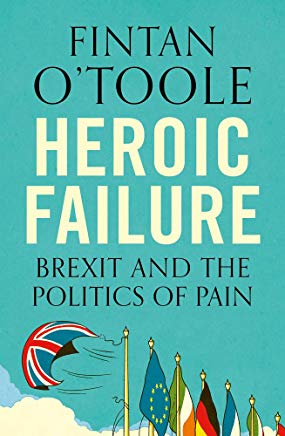Warning: Undefined array key "ssba_bar_buttons" in /usr/home/movgwifi/public_html/yesedinburghwest.info/wp-content/plugins/simple-share-buttons-adder/php/class-buttons.php on line 602
Warning: Undefined array key "ssba_bar_buttons" in /usr/home/movgwifi/public_html/yesedinburghwest.info/wp-content/plugins/simple-share-buttons-adder/php/class-buttons.php on line 602
Warning: Undefined array key "ssba_bar_buttons" in /usr/home/movgwifi/public_html/yesedinburghwest.info/wp-content/plugins/simple-share-buttons-adder/php/class-buttons.php on line 602

Reviewed in The Times. Buy the book here.
‘A quite brilliant dissection of the cultural roots of the Brexit narrative’ David Miliband.
‘Hugely entertaining and engrossing’ Roddy Doyle.
‘Best book about the English that I’ve read for ages’ Billy Bragg.
‘A wildly entertaining but uncomfortable read … Pitilessly brilliant’ Jonathan Coe.
In exploring the answers to the question: ‘why did Britain vote leave?’, Fintan O’Toole finds himself discovering:
- how trivial journalistic lies became far from trivial national obsessions;
- how the pose of indifference to truth and historical fact has come to define the style of an entire political elite;
- how a country that once had colonies is redefining itself as an oppressed nation requiring liberation;
- the strange gastronomic and political significance of prawn-flavoured crisps, and their role in the rise of Boris Johnson;
- the dreams of revolutionary deregulation and privatisation that drive Arron Banks, Nigel Farage and Jacob Rees-Mogg; and
- the silent rise of English nationalism, the force that dare not speak its name.
He also discusses the fatal attraction of heroic failure, once a self-deprecating cult in a hugely successful empire that could well afford the occasional disaster: the Charge of the Light Brigade, or Franklin lost in the Arctic. Now failure is no longer heroic – it is just failure, and its terrible costs will be paid by the most vulnerable of Brexit’s supporters, and by those who may suffer the consequences of a hard border in Ireland and the breakdown of a fragile peace.
Did the English superiority complex lead to Brexit? A nation is, in Benedict Anderson’s evocative phrase, an imagined community and nowhere more so in recent times than in Britain. Fintan O’Toole presents a Britain that is in the grip of a simultaneous superiority and inferiority complex. The victor of the Second World War has been denied the spoils and so has transformed itself into a victim. The Times were (unsurprisingly) not impressed.
Yes Edinburgh West has a website, Facebook, Twitter, National Yes Registry and a Library of topics on Scottish Politics, including Europe.



